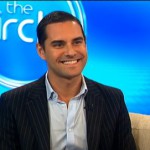 This article was recently published on the Menzies House website.
This article was recently published on the Menzies House website.
Recently the NSW Upper House passed a motion calling on the federal government to amend the Marriage Act to allow same-sex couples to marry. It passed with the support of seven Coalition MPs, who were a mix of conservatives, tradionalists, and libertarians all advocating for the reform from their individual standpoint and representing the views of their constituents.
What many found puzzling was that Liberal libertarian Peter Phelps voted against the motion on the basis that we should privatise marriage and thereby reduce government interference in personal life.
Brendan O’Neill took Phelp’s case one step further in the Australian in April. He argued that legalising same-sex marriage would open the door to government interference in an area traditionally off limits to the state – interpersonal and family relationships. To him, same-sex marriage would be such a radical “re-shaping” of cultural institutions that properly exist outside state control that it would effectively be a state takeover of these institutions (an argument I find offensive because it assumes same-sex relationships are fundamentally irreconcilable with traditional ideas of family and marriage).
Their case against same-sex marriage was satirised by a Labor colleague of Mr Phelps during the NSW debate. He said, “there are those here who believe in small government, government so small it only fits into the bedrooms of same-sex couples”.
Of course there are more serious issues at stake than that. Peter Phelps and Brendan O’Neill’s vision of the state abolishing all its rules and regulations for personal relationships is a noble one. But it is so politically untenable that it’s hard not to see another agenda at play here; the use of libertarian language to dodge a hard political choice.
Libertarians engaging in this debate should see same-sex marriage as a step towards removing unwanted state interference, not a step away.
But this issue is about more than the equal personal freedom of gay Australians. It is also about acknowledging that marriage is not what Phelps and others make it out to be.
Phelp’s argument essentially calls for a system whereby each couple gets to set their own rules, make their own contract, celebrate the marriage in a religious ceremony if allowed, or in a civil service of their choosing.
Such a system already exists, and it is marriage as we know it.
Despite the “white-picket-fence” ideal of Jim Wallace’s ACL, no two married couples are the same and each couple is allowed to set their own rules. Some marry to have kids. Some rule it out from the beginning. Some couples stay together forever. Some divorce after a week. Some live together. Some live apart due to work commitments. In some marriages the wife is the breadwinner while in others it’s both or the husband.
This ability to frame marriage in a couple’s own terms currently operates in Australian, that is, unless you want to marry someone of the same-sex.
It’s at this point that government interference kicks in and imposes restrictions on your relationship, and denies you access to the protection, recognition, and legal security of being married.
An excellent example is divorce. For gay Australians dissolution of a relationship is made more complicated by the fact that we cannot marry. Because we have no choice but to be de facto partners, we often find ourselves in a legal mess if our relationships end, inviting yet more intervention by the state to sort things out.
We can achieve this now for same-sex couples by supporting, rather than opposing, legislation that kicks Julia and Tony out of beds of thousands of same-sex couples.
